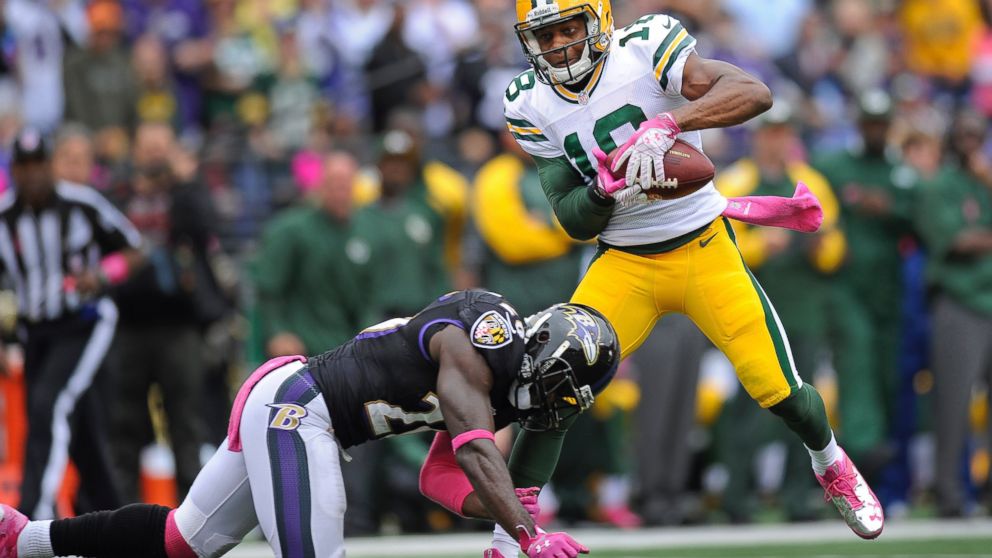Randall Cobb's Leg Fracture Flips NFL Concussion Conversation
It's not the first time the rules of football have been criticized.

Oct. 15, 2013— -- Six weeks on the bench or a lifetime of confusion? That's the question pitting some current NFL players against retired players battling the lingering effects of repeated concussions.
Randall Cobb, wide receiver for the Green Bay Packers, is the latest victim of the league's legal low blows – permissible shots to the legs designed to avoid blows to the head. The 23-year-old is expected to miss at least six games after fracturing his fibula in Sunday afternoon's game against the Baltimore Ravens.
"We try to play within the rules of football," Baltimore Ravens safety James Ihedigbo said of the hit on Cobb. "That's on [NFL commissioner] Roger Goodell. He wants us to hit low, we'll hit low, and guys will keep getting injured."
Read about the NFL concussion settlement.
It's not the first time the rules of football have been criticized for protecting heads at the expense of limbs, prompting some players and coaches to say they'd prefer a concussion.
"A concussion, you be back in a couple of weeks," HoustonTexans' safety D.J. Swearinger told the Palm Beach Post after laying a knee ligament-tearing, season-ending hit on Miami Dolphin Dustin Keller. "Leg injury, you can't come back from that."
Even former Chicago Bears coach Mike Ditka weighed in, telling ABC's sister network ESPN that helmets are the "most sophisticated" piece of football equipment.
"What do you have on your knee? Unless you wear a brace, you've got nothing," he said, adding "if you play football long enough, I'll guarantee you you're going to get hurt." "I'd rather get hit in the head, I'm sorry guys."
But some former players beg to differ, calling the comments by Ditka and others "irresponsible."
"The ramifications of a concussion are more severe than the complications of a broken leg," said Leonard Marshall, a former player who joined a class action lawsuit alleging that the NFL "ignored, minimized, disputed, and actively suppressed" awareness of the link between concussions and chronic neurological disease. "The cognitive effects of severe head trauma are quite tremendous."
Read about chronic traumatic encephalopathy, a brain disease linked to concussions.
Marshall, who played defense for the New York Giants, the New York Jets and the Washington Redskins for 12 seasons in the 1980s and early 1990s, said players are still forced to weigh the immediate consequences of sitting out with the long-term fallout of returning to the field too soon.
"It's very hard to do, especially when you're in your early 20s," he said, adding that coaches are critical in the decision-making process. "You need to be able to value and trust what he says. And for coaches, they need to be able to trust that player if says he's healthy enough to play, that he's going to be able to do it."
Jason Luckasevic, a Pittsburgh-based lawyer who represented Marshall and other NFL players in the recently-settled concussion lawsuit, said players who say they'd prefer a head injury are simply at different stages in their lives.
"A broken leg, even though it might sideline you for four and five weeks, is temporary," he said, stressing that the effects of repeated concussions can last forever. "I think it's just the perspective of who you're asking and where they are in their lives."
Luckasevic also likened concussions to "fractures" of the brain.
"If players are sitting out five or six weeks for a fractured leg, the question I have is why aren't they sitting out that long for a concussion?" he said.




